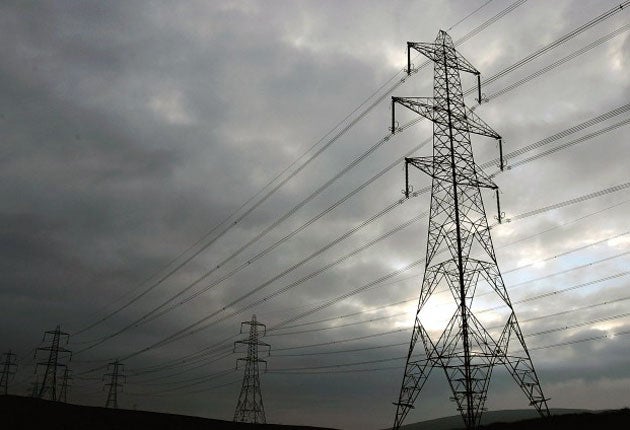Martin Hickman: Britain's energy system is a mess

Ofgem's warning that families face a 60 per cent rise in energy bills in the next decade shows what a mess Britain’s energy system has become.
If you were designing a 21st Century system you would have the opposite of what we have now: crumbling power stations, little renewable power, 99 per cent of customers with six suppliers, antiquated metering, and little energy efficiency: Britain’s homes are the least insulated in Europe.
In some ways, the problems of the energy system mirror those of the financial system. Everyone seemed happy with short-termism; politicians were content that households had unrealistically low bills for the first half of this decade as Britain tore through its vast gas reserves, pumping out supplies on the cheap to thermally wasteful homes.
Decisions about replacing old nuclear power and coal-fired stations were delayed. A crucial strategic move into renewable power was half-hearted.
Despite the Government’s small renewables target of 9.7 per cent this year, suppliers produce just 5 per cent renewables (And charge ‘green’ customers more for this legally-required energy).
Just as banking and household debt cannot forever rise, such an unsustainable system cannot last. The energy crunch has arrived.
Britain’s gas reserves have dwindled, making the UK more dependent on supplies from abroad, mostly nothern Europe but also, increasingly, from volatile regions of the world. The power stations have to be replaced, or the lights will go off. Climate change can no longer be ignored.
All this means that up to £20bn of investment is needed and bills will have to rise, by between 20 and 60 per cent in next decade, before sliding back downwards.
Does this mean that The Independent was wrong to call this week for price cuts? It’s important to make a distinction between the current market failure (a lack and competition and regulation) and what is required for an energy system fit for the 21st Century.
Over next decade bills will certainly have to rise to fund the new, greener generation we have been dodging for a generation. But the £1,140-a-year bills being charged by the Big Six suppliers now are not funding this vast new investment (that’s why bills ultimately have to rise).
Suppliers will announce bumper profits this winter and shareholders will be the ones that benefit. As the Local Government Association discovered last year, in 2007 - at a time when the Big Six were moaning about rising wholesale costs and investments in new power stations - they funnelled an extra £257m to shareholders, £75 per home.
So, yes, a future energy system must be greener, with more renewables and more efficient, and that costs money. Our money.
This shouldn’t wrack householders with fear; the rises will be imposed in tranches. And energy efficiency can substantially ease them. Boring measures like wearing jumpers and turning down the heating, ensuring every lightbulb is a long-lasting ‘eco’ one, lagging lofts and draught-proofing doors and windows really slash bills.
Smart meters instantly highlight usage and encourage greener habits. Greater competition between suppliers, with clearer bills that show how expensive an operator is compared with rivals, and more efficient internet accounts where bills are emailed rather than posted, will also exert downward pressure on prices.
For the five million and rising Britons who will not be able to afford this new green future, better social tariffs should be introduced.
In short, we need an energy system very different to the one today. Who is responsible for its deficiencies? The Government, Ofgem and the suppliers.
Subscribe to Independent Premium to bookmark this article
Want to bookmark your favourite articles and stories to read or reference later? Start your Independent Premium subscription today.

Join our commenting forum
Join thought-provoking conversations, follow other Independent readers and see their replies